Search Results
Showing results 1441 to 1460 of 2169
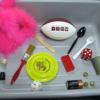
Mystery Box: Making Observations and Collecting Data
Source Institutions
This activity was designed for blind learners, but all types of learners can use it to learn to differentiate between qualitative and quantitative observations and to practice data collection.

Size, Scale and Models
Source Institutions
In this activity, learners take measurements and create charts to learn about the size of dinosaurs and their relative scale to humans.

Matter of Degree
Source Institutions
In two separate bags, learners mix water with Epsom salts and detergent.

Building a Magic Carpet
Source Institutions
In this activity (page 89 of the PDF), learners compare and contrast pitch and roll motions by using a Magic Carpet maze similar to one that was used for Neurolab investigations about microgravity.

Liquid Crystal Thermometers
Source Institutions
In this activity, learners explore liquid crystal thermometers to observe how heat flows by conduction, convection, radiation, and evaporation.

Sea Turtle First Aid Investigation
Source Institutions
This activity (located on page 4 of the PDF under GPS: Sea Turtles Activity) is a full inquiry investigation into testing a repair material.
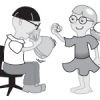
Raising the Level of Carbon Dioxide in Your Blood
Source Institutions
In this activity (on page 146 of the PDF), learners will explore the effects of increased carbon dioxide in the bloodstream.
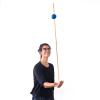
Balancing Stick
Source Institutions
In this quick and simple activity, learners explore how the distribution of the mass of an object determines the position of its center of gravity, its angular momentum, and your ability to balance it
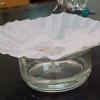
Chromatography
Source Institutions
In this chemistry activity, learners will separate a mixture of FD&C dyes (colors certified and allowed by the US for the Food, Pharmaceutical, Cosmetics & Personal Care industry) to practice

Can Nutrients in Water Cause Harm?
Source Institutions
In this water pollution activity, learners create pond water cultures and investigate the effects of adding chemicals or natural nutrients.
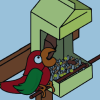
Bird Feeders
Source Institutions
In this activity, learners build a bird feeder or feeders to attract birds for observation.

Be A Pasta Food Scientist
Source Institutions
In this activity, learners of all ages can become food scientists by experimenting with flour and water to make basic pasta.
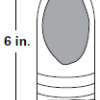
Breathing Machine
Source Institutions
In this activity, learners work in teams to construct human lung models from small plastic beverage bottles and balloons.
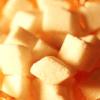
Sugar Crystal Challenge
Source Institutions
This lesson focuses on surface area and how the shape of sugar crystals may differ as they are grown from sugars of different coarseness.
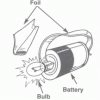
Bright Lights
Source Institutions
In this activity about electricity, learners imagine that they are out in the wilderness and it is getting dark. Their task is to use the materials supplied to build a simple flashlight.
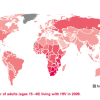
Mapping the Spread of HIV/AIDS: Trailing the Pandemic
Source Institutions
In this activity, learners act as epidemiologists by mapping the prevalence of HIV/AIDS worldwide.
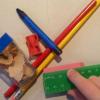
What is a Nanometer?
Source Institutions
This lesson focuses on how to measure at the nanoscale and provides learners with an understanding how small a nanometer really is.

The Self-Watering Terrarium
Source Institutions
In this biology/ecology activity, learners construct a terrarium out of a tennis ball container. This terrarium is unique because it never has to be watered.

Home Water Audit
Source Institutions
This activity offers learners and their families several ways to raise their awareness together about home water.
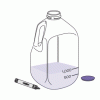
Lungometer
Source Institutions
In this environmental health activity, learners investigate their own vital lung capacities.
